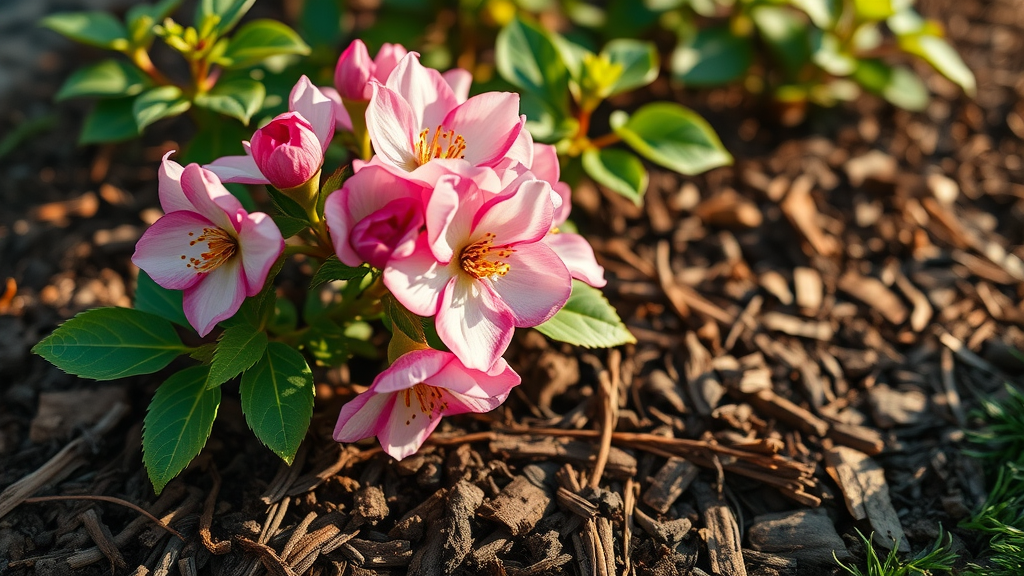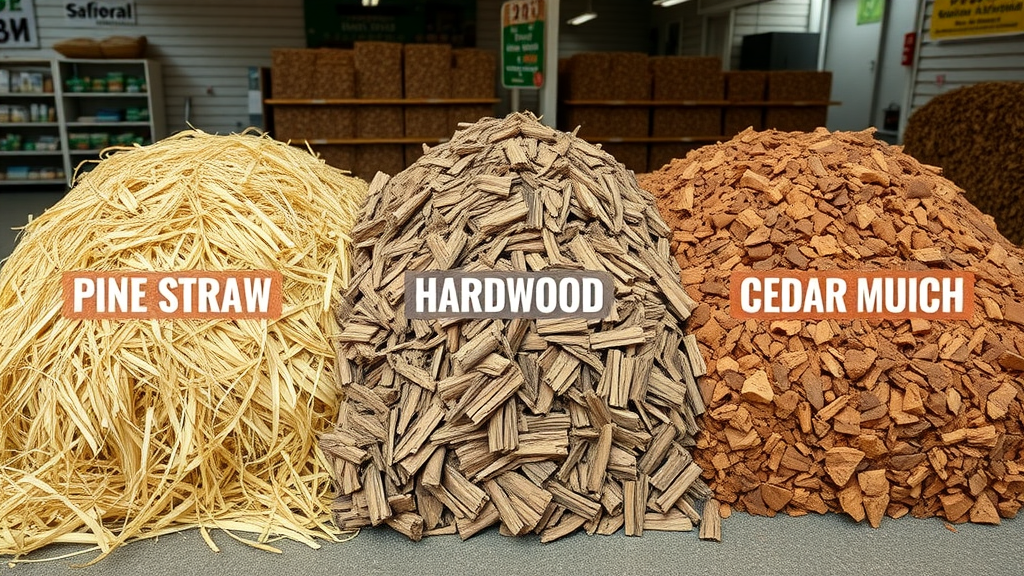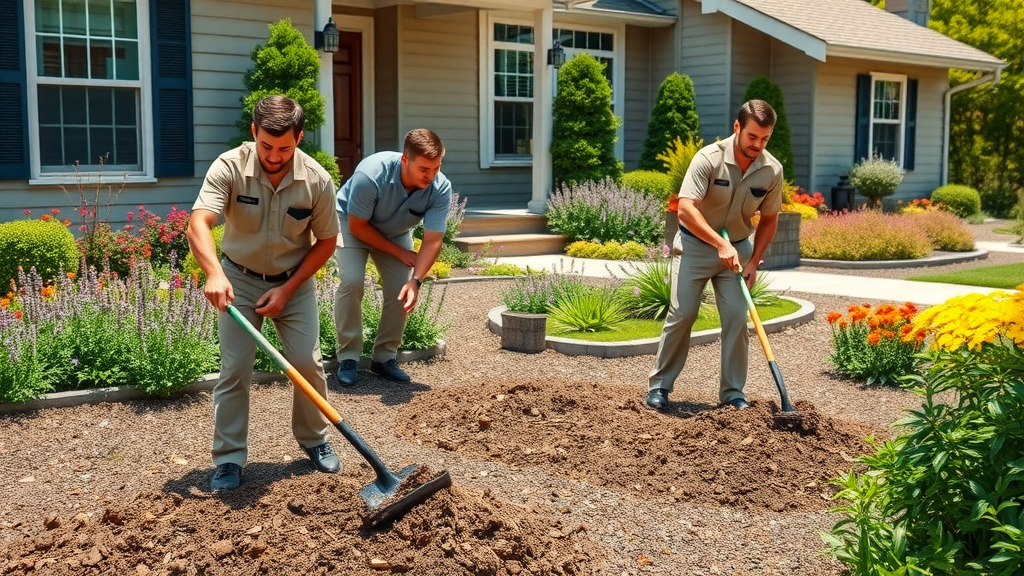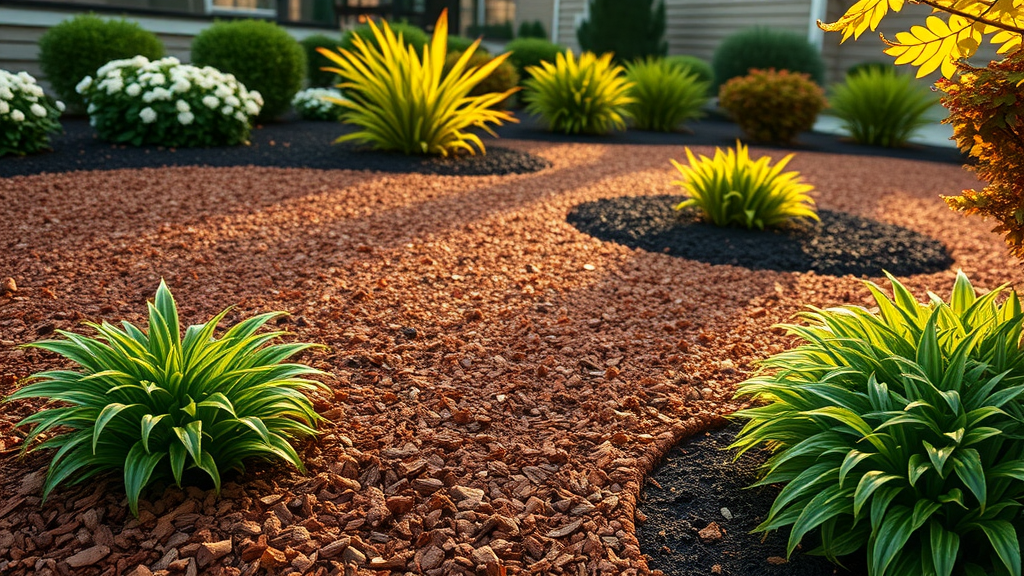Did you know proper mulch installation can lock in up to 70% more soil moisture, saving you money and revitalizing your garden in Raleigh, NC? Whether you’re dealing with stubborn clay, dry summer days, or endlessly sprouting weeds, landscaping with mulch Raleigh NC is a proven solution for transforming your outdoor spaces into lush, healthy retreats. This article dives deep into everything you need to know—from choosing the ideal mulch type to finding trustworthy installation experts and understanding local costs. By the end, you’ll discover actionable strategies to boost your garden’s health, aesthetics, and value—all while using the most current practices and products available in Raleigh and the surrounding Triangle area.
What You'll Learn About Landscaping with Mulch Raleigh NC
- Benefits of landscaping with mulch Raleigh NC
- Types of mulch available, including pine straw
- How mulch installation is done in Raleigh
- Pricing and costs for landscaping with mulch in Raleigh NC
- Expert tips for maximizing your garden health

Mulch Matters: The Surprising Impact of Landscaping with Mulch Raleigh NC
Landscaping with mulch Raleigh NC is more than a finishing touch—it's a foundational investment in your garden's longevity. Mulch, when installed properly, acts as an insulating barrier that shields your plants from North Carolina’s infamous hot, dry summers and unpredictable winter swings. This protective layer reduces the need for constant watering, keeping your soil moist for longer, and allowing roots to thrive beneath the surface. Homeowners across Raleigh have found that regular mulch application has significantly boosted their flower bed vitality, warding off pesky weeds and cutting down on garden upkeep.
Even for seasoned gardeners and lawn care enthusiasts in the Triangle area, the choice of mulch—whether traditional hardwood or increasingly popular pine straw—can make a big difference. Selecting the right variety helps regulate soil temperature, stabilizes moisture, and even supports the health of the entire ecosystem in your backyard. With improved water retention and less surface runoff during heavy storms, your outdoor projects stand a better chance against the elements, all while contributing to the sustainability of your landscape design.
"Studies show that proper mulch installation can reduce soil moisture loss by up to 70%, making landscaping with mulch Raleigh NC a water-smart investment."
Why Choose Landscaping with Mulch Raleigh NC? (Benefits Overview)
- Enhanced soil fertility and moisture retention: Organic mulch like shredded hardwood or pine straw adds nutrients to your soil as it breaks down, ensuring lasting plant health.
- Effective weed control: A two- to three-inch layer smothers weeds, cutting back the time and effort of manual weeding.
- Temperature regulation for plant roots: Mulch keeps root zones cool in summer and warmer in winter, which is crucial for protecting your investment in perennials, shrubs, and trees.
- Curb appeal boosts property value: Freshly mulched garden beds and vibrant flower beds create visual contrast that makes your landscape stand out—and increases your home’s value.
- Eco-friendliness, with options like pine straw: Pine straw, a favorite in Raleigh, is renewable and encourages healthy growth for acid-loving plants like azaleas and camellias.

Popular Mulch Types for Landscaping with Mulch Raleigh NC
Pine Straw vs Traditional Mulch Options
Choosing the right mulch is essential for maximum garden health, especially in Raleigh’s unique climate. Pine straw is widely loved for its natural appearance and suitability for needle pine and flower beds, but hardwood and cedar mulch offer their own distinctive features. Pine straw, which needles shed from Southern pines, is lightweight and excellent for acid-loving plants, and its reddish-brown hue adds a warm, Southern charm to landscaping projects.
Hardwood mulch and cedar mulch, meanwhile, provide longer lifespans and darker tones, often preferred for a clean, classic look around trees and perennial garden beds. Cedar is especially popular where insect resistance is key. When working with a professional mulch installation service like the locally owned Grounds Guys or Mulch Masters, you’ll often have an opportunity to compare these options side-by-side—and select a combination that fits your landscape supply needs and aesthetics.
| Mulch Type | Appearance | Benefits | Lifespan | Best Use |
|---|---|---|---|---|
| Pine Straw | Loose, reddish-brown | Acidifies soil, light, easy to spread | 4-6 months | Acid-loving plants |
| Hardwood Mulch | Dark, shredded | Long-lasting, suppresses weeds | 12-18 months | Flowerbeds, trees |
| Cedar Mulch | Light brown, aromatic | Insect deterrent | 12-24 months | Playgrounds, walkways |

Mulch Installation Services in Raleigh NC (mulch installation, grounds guys, pine straw)
What to Expect from Professional Mulch Installation in Raleigh
When you hire a professional mulch installation team in Raleigh, like the Grounds Guys or Mulch Masters, you’re getting more than just labor—you’re investing in local expertise and quality mulch installation. The process generally starts with a thorough site assessment, where the team evaluates soil condition, slope, pre-existing weeds, and desired flower bed layout. This ensures your new mulch provides the maximum health boost to your landscape.
Once the assessment is complete, your crew helps you choose the perfect material—be it pine straw, triple shredded hardwood, or cedar options. Skilled installers spread mulch evenly around garden beds, shrubs, and trees at the ideal 2–3-inch depth for optimal moisture retention and weed prevention. Trusted, locally owned and operated companies often offer follow-up maintenance services, guaranteeing that your garden’s health and curb appeal last beyond the initial installation. Their comprehensive mulch installation packages allow you to sit back and watch your landscaping investment flourish, making them a popular choice across the North Carolina Triangle area.
- Site assessment and prep
- Material selection (including pine straw or hardwood mulch)
- Installation techniques for maximum plant benefit
- Maintenance scheduling

Landscaping with Mulch Raleigh NC: Price and Value Breakdown
Understanding mulch pricing in Raleigh NC is crucial to planning your landscaping budget. Prices vary not only by mulch type but also by the service level—whether you’re ordering materials for a DIY project or opting for full-service professional mulch installation. Pine straw is a consistent favorite for its affordability and versatility, while cedar and shredded hardwood options may carry higher price tags, reflecting their longevity and pest-resistant qualities.
Leading landscape supply providers typically offer a wide range of mulch at competitive prices; however, installation fees can differ based on property size, layout complexity, and labor requirements. The following table offers a transparent look at average mulch costs, helping Raleigh homeowners make informed buying decisions for their outdoor projects:
| Mulch Type | Average Cost per Yard (Raleigh NC) | Installation Fee |
|---|---|---|
| Pine Straw | $35–$50 | $30–$60 |
| Hardwood | $40–$55 | $50–$80 |
| Cedar | $55–$70 | $60–$90 |
Quote from a Local Expert on Landscaping with Mulch Raleigh NC
"Adding mulch to your landscape is the simplest step you can take for healthier plants and effortless beauty in the Raleigh climate." – Grounds Guys, Raleigh NC
People Also Ask About Landscaping with Mulch Raleigh NC
How much do landscapers charge for a yard of mulch?
Local landscapers in Raleigh typically charge between $30 and $90 per yard of mulch, depending on the mulch type and complexity of installation. Pine straw is often at the lower end while cedar and triple shredded hardwood can be more costly due to their quality and lifespan. Pricing also factors in property access, area to cover, and whether you’re seeking a basic mulch drop-off or a full professional mulch installation package. Many landscape supply companies offer an online order system, letting you compare installation quotes from the comfort of home.
How much does mulch cost in Raleigh NC?
In Raleigh NC, mulch prices for materials typically range from $35 per yard (for pine straw) to $70 or more (for cedar mulch), before installation fees. Locally owned suppliers and the Grounds Guys often provide volume discounts, especially for outdoor projects like large flower bed refreshes. When budgeting for mulch installation, consider that organic mulch like hardwood or pine straw must be replenished regularly, while premium options can deliver lasting value by keeping your yard low-maintenance for seasons to come.
What are 5 disadvantages of mulching?
- Potential for attracting insects if not maintained
- Risk of over-mulching leading to root rot
- Mulch may blow away or wash off in storms
- Periodic replenishment required
- May alter soil pH unfavorably if wrong type is chosen
While landscaping with mulch Raleigh NC has many advantages, it’s important to understand and plan for these possible downsides. Regular inspection, proper selection, and expert guidance go a long way in maximizing mulch benefits.
Does landscaping include mulch?
Yes, most reputable Raleigh landscaping packages include mulch as a core service. Whether you’re working with a professional mulch installation team or handling a DIY project, mulch is essential for defining garden beds, boosting soil health, controlling weeds, and enhancing the aesthetic value of your property. Companies like the Grounds Guys, Mulch Masters, and other locally owned landscape supply teams offer a wide assortment of mulch types and installation plans designed to elevate your yard’s curb appeal.
Landscape Design Tips: Maximizing Impact with Mulch
- Define garden beds with sharp mulch edges for a tidy, professional look that lasts all season.
- Use pine straw for acid-loving shrubs like azaleas, rhododendrons, and gardenias for optimal growth.
- Combine mulch colors (like red mulch with traditional brown) to create visual drama and contrast between different plantings and hardscape elements.
- Apply 2–3 inches of mulch for the perfect material barrier—deep enough to suppress weeds, shallow enough to allow water to penetrate.

FAQs on Landscaping with Mulch Raleigh NC
-
How often should I replace mulch in Raleigh NC?
Typically, pine straw mulch should be refreshed every 4–6 months, while hardwood or cedar mulch can last 12–24 months depending on weather and maintenance. Inspect mulch after heavy storms or after the growing season to maintain optimal thickness and coverage. -
Which mulch type works best for vegetable gardens?
Organic mulch such as shredded hardwood or composted leaf mulch is ideal for vegetable gardens, providing both soil enrichment and excellent moisture retention. Pine straw is also effective, provided the vegetables are not sensitive to increased soil acidity. -
Is dyed mulch safe for pets and kids?
Most premium red mulch and black mulch products use non-toxic, vegetable-based dyes and are considered safe for use around pets and children. Still, always check with the supplier or choose certified quality material when safety is a top concern. -
How can I prevent weeds through mulching?
Apply a thick (2–3 inch) layer of mulch directly onto prepared soil, ensuring coverage is consistent throughout garden beds and around tree bases. Consider using a weed barrier underneath the mulch for enhanced protection, especially in new landscape installations.
Key Takeaways: Why Landscaping with Mulch Raleigh NC is the Smart Choice
- Boosts soil health and moisture
- Improves aesthetics instantly
- Affordable, eco-friendly, and easy to maintain
Mulch in Action: Video Guide for Landscaping with Mulch Raleigh NC
Watch a professional mulch installation from prep to completion in a real Raleigh home garden—see how pros select, spread, and maintain mulch for healthy, thriving flower beds.
Customer Reviews on Landscaping with Mulch Raleigh NC
- "Mulch made my garden look incredible—worth every penny!"
- "Very happy with the pine straw installation from Grounds Guys."

Conclusion: Next Steps for Landscaping with Mulch Raleigh NC
Ready for lush, low-maintenance gardens? Call today or order mulch online from a trusted local expert to transform your Raleigh landscape for seasons to come!
 Add Row
Add Row  Add
Add 




Write A Comment